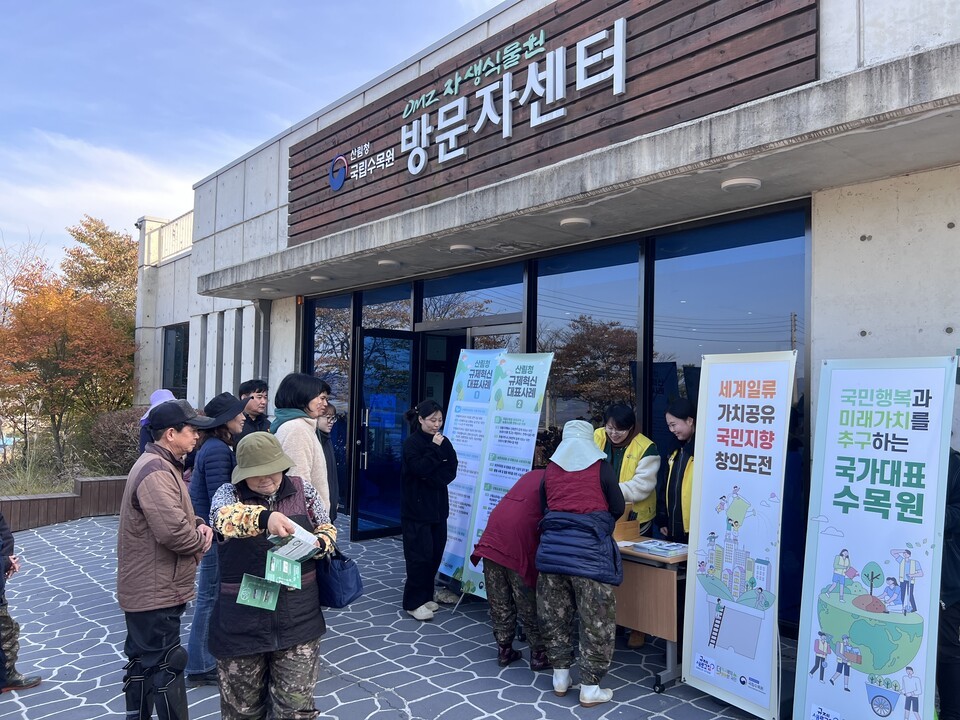The Korea National Arboretum, under the leadership of Director Lim Young-seok, has taken measures to directly listen to the voices of residents and forestry workers from border areas. The goal is to clearly explain the content of regulatory improvements and gather feedback on issues needing reform.

On October 30, the Korea National Arboretum announced that it had operated a “Regulatory Innovation On-Site Support Center” at the National DMZ Botanical Garden in Yanggu County, Gangwon Province. This event aimed to introduce significant regulatory improvement examples in the forestry field considering the ecological characteristics and living conditions of the DMZ border area, and to collect opinions for institutional reform.
The on-site support center was operated through various participatory communication programs, including the distribution of regulatory information and card news, one-on-one consultations and suggestion receptions (via the National Sound Box), and policy surveys. The feedback collected on-site is set to be reviewed by relevant departments and reflected as institutional improvement tasks.
The Korea National Arboretum has continuously operated a “Mobile Regulatory Innovation Consultation Desk” in urban areas of Seoul and metropolitan festival venues throughout this year. Following the Seoul Newspaper Half Marathon in May, the Gwangneung Forest Festival in September, and the Eulalia Flower Festival in October, consultation content and routes have been improved, expanding public participation.
On-site, promotional materials featuring “public experience-based” regulatory improvement examples by the Korea Forest Service were distributed, explaining the institutional content clearly. Key improvements include extending the payment deadline for the use of state-owned forests and leasing fees from 60 to 120 days to reduce management burdens, relaxing criteria for mountain district land use in depopulated areas (up to 20% relaxation in terms of average slope and elevation), and improving the procedure for issuing production confirmation documents for pine species (simplifying reissuance and allowing online issuance).
These systems are considered representative improvement cases to enhance settlement conditions in the region and administrative convenience for forestry workers. Residents and stakeholders visiting the site expressed their agreement with the direction of institutional improvement and hoped for practical support.
Lim Young-seok, the Director of the Korea National Arboretum, stated, “Operating the on-site support center in the DMZ border area was a meaningful attempt to address regulatory blind spots. We will meticulously review the feedback gathered on-site to create changes that the public can truly feel.”